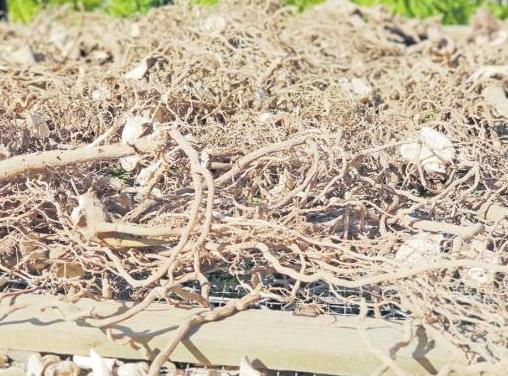MOVES are afoot to take kava production in Fiji to a new level, in response to a growing demand in the United States and stringent health and safety requirements for entering that market.
While addressing Parliament last week, Minister for Agriculture Vatimi Rayalu revealed his ministry’s kava plans, which include the launch of a kava research to “revolutionise large-scale commercial farming”.
“The Kava Bill, developed in partnership with the Ministry of Trade, is nearing completion,” he said.
“This legislation will ensure that our kava meets international regulatory requirements, including those of the US FDA (US Food and Drug Administration).
“By setting stringent quality benchmarks, we are not just ensuring compliance but establishing Fiji as the gold standard in kava production.”
A recent trade mission to North America had opened doors for kava, with delegates – among them Assistant Agriculture Minister Tomasi Tunabuna – witnessing first-hand how the demand for kava had grown exponentially in the US market, driven by an increase in kava bars and an appetite by American consumers for kava beverage and kava extracts.
Mr Rayalu said Fiji was ready to meet the rise in global demand for kava.
“Kava’s unique calming properties have positioned it as a key component in stress-relief capsules, herbal teas, and wellness beverages.
“These products are in high demand as the US market continues to prioritise health and wellness.
“We are working hand-in-hand with exporters, processors, and industry stakeholders to align with both local and international market standards.
“Through partnerships with US importers and Trade Commissions, we are promoting Fijian-grown kava as a premium product worldwide.
“We are taking bold, decisive steps to ensure that Fijian kava remains synonymous with quality and consistency.”
Plans for kava according to Mr Rayalu:
We are launching a “Research on Kava” to revolutionise large-scale commercial farming.
In key kava-growing regions, modern wash bays will soon be constructed to enhance processing standards.
Through the introduction of advanced technologies and best practices in crop management, we are boosting productivity and empowering farmers.
Most importantly, we are actively engaging our youth, ensuring that the next generation carries this industry forward with pride and innovation.
“This is not just about planting crops; it is about planting opportunities—for our farmers, our families, and our future,” he said.



